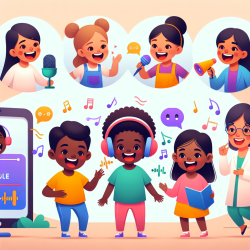Introduction
In today's digital age, the influence of social media on youth behavior is undeniable. A recent study titled "Puff or pass: do social media and social interactions influence smoking behaviour of university students? A cross-sectional mixed methods study from Dhaka, Bangladesh" sheds light on how social media and peer interactions impact smoking habits among university students. As practitioners focused on creating positive outcomes for children, understanding these influences is crucial for developing effective interventions.
Key Findings from the Study
The study, conducted among 600 university students in Dhaka, Bangladesh, revealed significant associations between social media use, peer interactions, and smoking behavior. Here are some key findings:
- Students who socialized for more than 4 hours a day had higher odds of smoking (OR 1.75; 95% CI 1.12 to 2.75).
- Nighttime social interactions further increased the likelihood of smoking (OR 2.80; 95% CI 1.95 to 4.00).
- Engagement with tobacco-related content on social media, such as liking, sharing, or following, was strongly associated with smoking (e.g., sharing content had an OR of 20.50; 95% CI 13.02 to 32.26).
Implications for Practitioners
These findings highlight the importance of considering both social media and peer influences when addressing smoking behavior among youth. As practitioners, we can leverage this knowledge to design interventions that target these specific influences. Here are some strategies to consider:
- Social Media Campaigns: Develop campaigns that counteract tobacco-related content by promoting the benefits of a smoke-free lifestyle.
- Peer-Led Initiatives: Encourage peer-led discussions and activities that promote healthy behaviors and provide support for smoking cessation.
- Educational Workshops: Conduct workshops that educate students about the impact of social media on behavior and how to critically evaluate online content.
Encouraging Further Research
While this study provides valuable insights, it also opens the door for further research. Understanding the nuances of social media's impact on behavior requires continuous exploration. Future research could focus on:
- Longitudinal studies to establish causal relationships between social media use and smoking behavior.
- Exploring the effectiveness of social media-based interventions for smoking cessation.
- Investigating the role of different social media platforms in influencing behavior.
Conclusion
The influence of social media and peer interactions on smoking behavior among university students is a growing concern. By understanding these influences, practitioners can develop targeted interventions to promote healthier lifestyles. To read the original research paper, please follow this link: Puff or pass: do social media and social interactions influence smoking behaviour of university students? A cross-sectional mixed methods study from Dhaka, Bangladesh.










